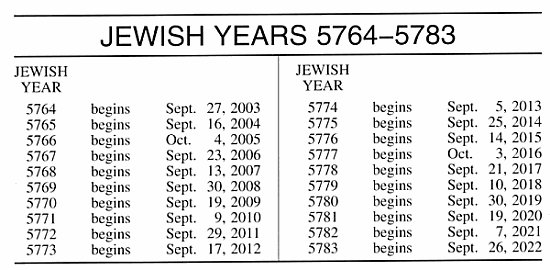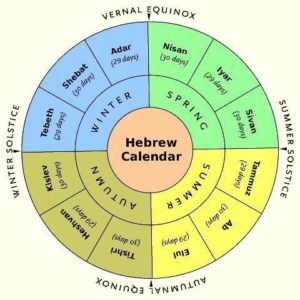The Jewish Calendar 2025: A Comprehensive Overview
Related Articles: The Jewish Calendar 2025: A Comprehensive Overview
- July 2025 To June 2026 Calendar
- 7Calendar 2025 Luty: A Comprehensive Overview
- Lesotho Calendar 2025: A Comprehensive Guide For Planning And Organization
- F1 Races 2025 Calendar: Expansion, Excitement, And Uncharted Territories
- Jan 2025 Calendar With Holidays Printable: A Comprehensive Guide To The First Month Of The New Year
Introduction
With great pleasure, we will explore the intriguing topic related to The Jewish Calendar 2025: A Comprehensive Overview. Let’s weave interesting information and offer fresh perspectives to the readers.
Table of Content
Video about The Jewish Calendar 2025: A Comprehensive Overview
The Jewish Calendar 2025: A Comprehensive Overview

The Jewish calendar, also known as the Hebrew calendar, is a lunisolar calendar that combines lunar months with solar years. It is used to determine the dates of Jewish holidays, festivals, and other religious observances. The Jewish calendar is approximately 3,760 years old, and its origins can be traced back to the ancient Israelites.
Structure of the Jewish Calendar
The Jewish calendar is based on a 19-year cycle, known as the Metonic cycle. This cycle ensures that the same sequence of days and months occurs every 19 years. The Jewish year consists of 12 lunar months, which are approximately 29.5 days long. To compensate for the difference between the lunar and solar years, an extra month, known as Adar II, is added seven times during the 19-year cycle.
Months of the Jewish Calendar
The 12 months of the Jewish calendar are:
- Nisan (Spring)
- Iyar (Spring)
- Sivan (Summer)
- Tammuz (Summer)
- Av (Summer)
- Elul (Fall)
- Tishrei (Fall)
- Cheshvan (Fall)
- Kislev (Winter)
- Tevet (Winter)
- Shevat (Winter)
- Adar (Winter)
Holidays and Festivals
The Jewish calendar is marked by a number of important holidays and festivals, including:
- Rosh Hashanah (Jewish New Year)
- Yom Kippur (Day of Atonement)
- Sukkot (Feast of Tabernacles)
- Simchat Torah (Rejoicing of the Law)
- Hanukkah (Festival of Lights)
- Purim (Feast of Lots)
- Passover (Festival of Unleavened Bread)
- Shavuot (Feast of Weeks)
Jewish Calendar 2025
The Jewish calendar for 2025 begins on September 14, 2024, and ends on October 2, 2025. The following table provides an overview of the key dates and holidays in the Jewish calendar for 2025:
| Date | Hebrew Date | Holiday |
|---|---|---|
| September 14, 2024 | 1 Tishrei 5786 | Rosh Hashanah |
| September 15, 2024 | 2 Tishrei 5786 | Rosh Hashanah |
| October 4, 2024 | 10 Tishrei 5786 | Yom Kippur |
| October 9, 2024 | 15 Tishrei 5786 | Sukkot |
| October 16, 2024 | 22 Tishrei 5786 | Shemini Atzeret |
| October 17, 2024 | 23 Tishrei 5786 | Simchat Torah |
| December 18, 2024 | 25 Kislev 5786 | Hanukkah |
| February 26, 2025 | 14 Adar 5786 | Purim |
| April 5, 2025 | 15 Nisan 5786 | Passover |
| April 13, 2025 | 22 Nisan 5786 | Seventh Day of Passover |
| May 28, 2025 | 6 Sivan 5786 | Shavuot |
| September 12, 2025 | 1 Elul 5786 | Rosh Hashanah |
| September 13, 2025 | 2 Elul 5786 | Rosh Hashanah |
Observing the Jewish Calendar
The Jewish calendar is an integral part of Jewish life. It determines the dates of religious observances, festivals, and holidays. Jews around the world use the Jewish calendar to plan their religious activities and to connect with their heritage.








Closure
Thus, we hope this article has provided valuable insights into The Jewish Calendar 2025: A Comprehensive Overview. We appreciate your attention to our article. See you in our next article!